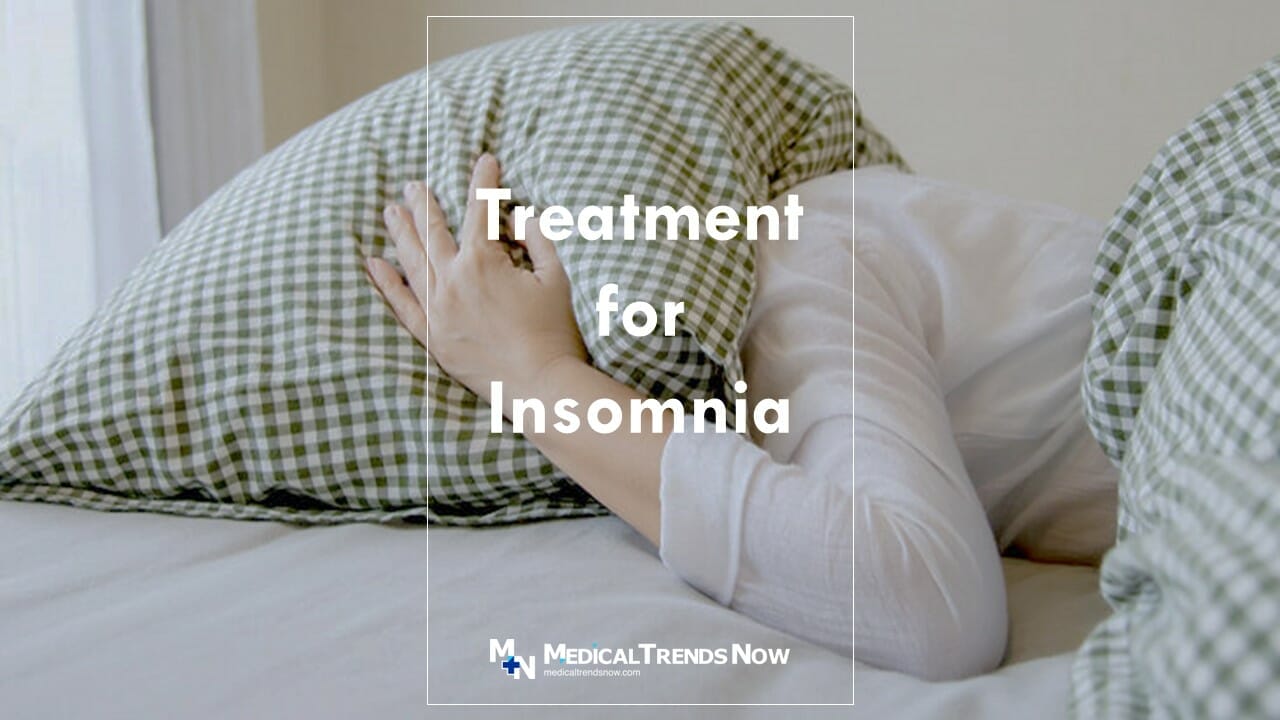Table of Contents
Do you suffer from insomnia? Find out how to get a good night’s rest with our proven techniques, according to Filipino sleep medicine doctors. Find out the best treatment for insomnia.
Insomnia is a common sleep disorder that affects millions of Filipinos worldwide. According to a recent survey, the Philippines ranks 4th in sleep deprivation worldwide. Nearly 7 out of 10 Filipino teens are battling insomnia every night. While adults in the Philippines would ideally like to get 8.2 hours of sleep a night, in reality, they only sleep 6.8 hours on average, according to the Healthy Living Index of AIA. Another research found that more than 10 million Filipino adults suffer from insomnia, according to Health Grades Inc.
It can be an incredibly frustrating condition, causing sufferers to feel exhausted during the day despite having spent hours trying to get a good night’s sleep. Fortunately, there are effective treatments available for those struggling with insomnia. These treatments involve lifestyle changes, medication, and therapy. By understanding the underlying causes of insomnia and utilizing these treatments, it is possible to find relief from this difficult disorder.
![Natrol Gummies Melatonin 10mg [90pcs.] Strawberry Flavor Sleep Aid Insomnia Cure](https://e52hyu4yuyt.exactdn.com/wp-content/uploads/2023/01/Natrol-Gummies-Melatonin-10mg-90pcs.-Strawberry-Flavor-Sleep-Aid-Insomnia-Cure-300x300.jpg?strip=all&lossy=1&ssl=1)
What is Insomnia?
Insomnia is a common sleep disorder that affects millions of Filipinos worldwide. It can lead to serious health problems, making it important to understand the causes and symptoms and how to treat them.
Insomnia is marked by difficulty falling asleep or staying asleep, leading to daytime fatigue and irritability. Common causes include stress, diet choices, certain medications, caffeine consumption during evening hours, or underlying medical conditions such as depression or chronic pain. Symptoms may also include difficulty concentrating during the day, reduced alertness while driving or operating machinery, and even changes in appetite.
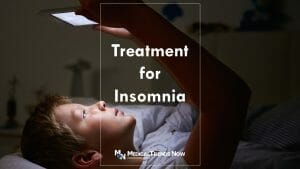
Causes of Insomnia
Insomnia is caused by various factors, and insomnia can severely affect daily life and overall health.
The primary cause of insomnia is stress or anxiety. Stressful events such as job loss, death, divorce, or other life changes can lead to difficulty sleeping or staying asleep. Other psychological issues such as depression, bipolar disorder, post-traumatic stress disorder (PTSD), and obsessive-compulsive disorder (OCD) may also cause sleeplessness. Additionally, the use of certain medications or drugs can interfere with normal sleep patterns. Behavioral causes include poor sleep habits, such as irregular bedtimes and naps during the day, disrupting the body’s natural circadian rhythm.

Treatment for Insomnia: Medication
A lack of quality sleep can cause various physical and mental health problems. One way to address insomnia is through medications.
There are several types of medications used to treat insomnia. Antidepressants have been found to be helpful for some individuals with insomnia, as they can reduce the time it takes to fall asleep and increase overall sleep quality. Sedatives such as benzodiazepines are also commonly prescribed for short-term relief from insomnia. Still, they should not be taken over long periods due to their potential for habit-forming behavior and side effects. Nonbenzodiazepine hypnotics are another option, which works quickly but tend to have fewer side effects than sedatives.

Treatment for Insomnia: Behavioral Strategies
Sleep treatments typically involve behavioral strategies, such as establishing regular sleep patterns, avoiding caffeine and alcohol close to bedtime, exercising regularly, limiting naps during the day, reducing stress levels, and so forth. Additionally, cognitive-behavioral therapy (CBT) may be prescribed to help Pinoy patients manage the underlying causes of their insomnia.
During CBT sessions with a trained professional, individuals will work through techniques designed to help them relax and modify their behaviors associated with sleep problems to develop healthy sleeping habits, such as prioritizing basic self-care habits like taking care of one’s diet and physical activity level.

What is Cognitive Behavior Therapy (CBT) For Insomnia?
Cognitive behavior therapy (CBT) is a form of psychological treatment that can help Filipinos with insomnia sleep better. CBT focuses on changing one’s thinking patterns to change sleep-related behaviors. It combines cognitive therapy, which helps individuals understand and modify their thought processes, with behavioral therapy, which encourages them to practice behaviors that will improve their sleep habits.
Studies have found that CBT can be an effective form of treatment for Filipinos suffering from chronic insomnia or other forms of sleep disturbances. One study published in the Journal of Clinical Psychology showed that CBT was more effective than medication alone in improving overall symptoms associated with insomnia. Additionally, the effects of CBT may be long-lasting; many participants reported improved sleeping habits even months after completing treatment sessions.
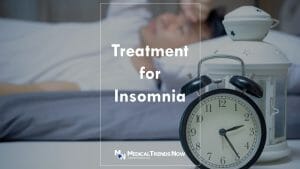
Treat Insomnia with Natural Remedy
Insomnia is an increasingly common condition that can cause difficulty sleeping, fatigue, and irritability. While prescription medications are often prescribed to treat this condition, many Filipinos are turning to natural remedies to get the sleep they need. Several easy and effective treatments are available, from herbal supplements to lifestyle changes.
One of the most popular natural solutions for insomnia involves using certain herbs such as chamomile, lavender, or valerian root. These herbs can be taken orally as teas or tinctures and have been shown to reduce stress levels and improve sleep quality. Additionally, other supplements such as melatonin or magnesium may help reset your body’s internal clock and support restful sleep patterns. Finally, lifestyle changes can also play a key role in improving your ability to fall asleep more quickly and stay asleep longer.

Diet and Exercise Habits
The inability to get a good night’s rest is never fun, but insomnia can be an even bigger issue for many Filipinos. According to the National Sleep Foundation, approximately 30% of adults have experienced insomnia symptoms within the last year. Insomnia can have serious short-term and long-term health consequences, so it’s important to develop strategies for reducing its effects. Diet and exercise habits are two ways to combat insomnia actively.
Certain dietary changes, such as eating small meals throughout the day or avoiding large meals close to bedtime, can help promote better sleep at night. Additionally, limiting caffeine and alcohol intake during the evening hours may also help reduce insomnia symptoms.
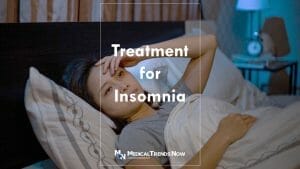
Long-Term Strategies to Help with Insomnia
Insomnia is a common disorder that can cause significant distress and interfere with daily life. Long-term strategies for improving insomnia involve lifestyle changes, relaxation techniques, and cognitive behavioral therapy (CBT). Simple lifestyle changes such as avoiding caffeine, nicotine, and alcohol close to bedtime or maintaining a consistent sleep schedule can help reduce the frequency of insomnia. Additionally, relaxation techniques such as deep breathing, progressive muscle relaxation, and guided imagery have also been found to be effective in reducing insomnia. Finally, CBT has been established as an effective treatment for chronic insomnia by helping individuals develop better sleep habits. This approach helps individuals identify and modify their beliefs about sleep and their behaviors related to sleep to establish healthier sleeping patterns.

Lifestyle Habits To Prevent Insomnia
There are lifestyle habits you can adopt that may help prevent insomnia from occurring in the first place.
First and foremost, ensure you’re getting enough sleep – 8 hours per day is recommended for most adults. Exercise regularly; this helps regulate your body’s natural circadian rhythms and improves overall sleep quality. Avoid caffeine and alcohol late at night; both substances disrupt your body’s ability to enter into deep restorative sleep states. Establish an evening routine before bedtime; this sets your mind and body into relaxation mode as you prepare for bed. Dim the lights in your bedroom one hour before going to bed as well; light stimulates brain activity, making it harder to drift off.
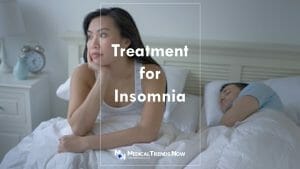
The Best Sleep Doctors in the Philippines
Here is a list of sleep medicine doctors in the Philippines:
St. Luke’s Medical Center
Comprehensive Sleep Disorders Center
St. Luke’s Medical Center – Global City
- Address: 2nd Floor, Institute of Neurosciences, Main Building, Rizal Drive cor. 32nd St. and 5th Ave, Taguig City, Philippines
- Telephone: +63-2-8789-7700 ext. 2009
- Website of St. Lukes Medical Center, click here
St. Luke’s Medical Center – Quezon City
- Address: Comprehensive Sleep Disorders Center, Ground floor, Annex Building II, 279 E Rodriguez Sr. Ave, Quezon City, Philippines
- Telephone: +63-2-8723-0101
- Website of St. Lukes Medical Center, click here
Makati Medical Center
Neurophysiology and Sleep Disorders Laboratory
- Address: No. 2 Amorsolo Street, Legaspi Village, Makati City, Philippines
- Telephone: +632 8888 8999
- Website of Makati Medical Center, click here
Lung Center of the Philippines
Home Sleep Apnea Test (HSAT) and Auto-CPAP (APAP) Titration Insomnia Clinic
- Address: Quezon Avenue, Barangay Central, Diliman, Quezon City 1100 Philippines
- Telephone: +632 8924 6101
Website of Lung Center of the Philippines, click here

The Medical City
The Medical City Manila
Center for Snoring and Sleep Disorders
- Ortigas Avenue, Pasig City, Metro Manila, Philippines
- Telephone: +63 2 8988-1000
- Website of The Medical City, click here
The Medical City Clark
Neuroscience and Sleep Laboratory
- Address: 100 Gatwick Gateway, Clark Global City Clark Freeport Zone, Pampanga, 2023, Philippines
- Telephone: +63 9190695536
- Website of The Medical City Clark, click here
Manila Doctors Hospital
Pulmonary Physiology and Sleep Lab
- Address: 8/F Norberto Ty Medical Tower II, Manila Doctors Hospital, 667 United Nations Ave, Ermita, Manila, Philippines
- Telephone: +632 8558-0888
- Website of Manila Doctors Hospital, click here
Capitol Medical Center
- Address: Quezon Avenue Cor. Scout Magbanua, Street, Quezon City, Philippines
- Telephone: +632 8372 3825
- Website of Capitol Medical Center, click here

Riverside Medical Center
- Address: B.S. Aquino Drive, Bacolod City, 6100 Philippines
- Telephone: +63 34 432 7624
- Website of Riverside Medical Center, click here
Asian Hospital and Medical Center
Comprehensive Sleep Study Packages
- Address: 2205 Civic Dr, Alabang, Muntinlupa, 1780 Metro Manila, Philippines
- Telephone: +632 8771-9000 local 5913
- Website of Asian Hospital and Medical Center, click here
QualiMed Hospital – Sta. Rosa
- Address: West Nature Avenue, Nuvali North, Sto. Domingo, Sta. Rosa, Laguna
- Telephone: +63 933 862 8852
- Website of QualiMed Hospital, click here
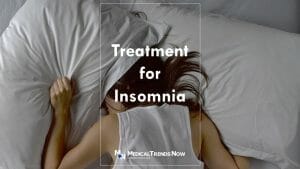
FAQs About Better Sleep
Here are some of the frequently asked questions about insomnia and sleep:
What is Chronic Insomnia
Chronic insomnia is a sleep disorder that affects millions of Filipinos in the Philippines and abroad. It is defined as difficulty falling asleep or staying asleep, despite the opportunity and desire to do so. Filipinos with chronic insomnia may experience difficulty sleeping three or more nights per week for at least three months.
The causes of chronic insomnia can vary greatly from person to person, but there are clear risk factors associated with this type of sleep disorder. Some common causes include medical conditions such as heartburn, arthritis, asthma, and depression; certain medications; lifestyle habits such as alcohol consumption and caffeine use; and stress or anxiety related to work, family, or other aspects of life. Treatment for chronic insomnia involves addressing any underlying medical issues first before looking at behavioral treatments such as relaxation techniques, cognitive-behavioral therapy, and medications if needed.
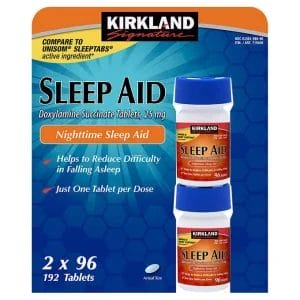
What are the Causes of Insomnia?
Insomnia is a sleeping disorder that affects a person’s ability to get quality sleep. It has become increasingly common in the Philippines, with an estimated one-third of adults suffering from it. Insomnia can be caused by various factors, ranging from medical conditions to lifestyle habits and psychological stressors.
The most common medical cause for insomnia among Filipinos is underlying physical or mental health conditions such as depression, anxiety, chronic pain, or arthritis. These underlying issues can make it difficult for an individual to relax enough to fall asleep easily at night. Additionally, certain medications could disrupt natural sleep patterns and lead to sleeplessness.
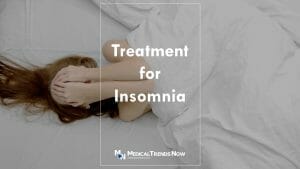
What are the Symptoms of Insomnia?
Insomnia is characterized by difficulty in falling asleep and staying asleep, non-refreshing sleep, and excessive daytime sleepiness. Filipinos with insomnia often feel tired, irritable, and have difficulty concentrating. In the Philippines, treatment for insomnia is available to help those who suffer from this condition.
The most common symptoms of insomnia include difficulty falling asleep at night or waking in the middle of the night; waking up too early in the morning; not feeling refreshed after a full night’s sleep; feeling tired during the day; irritability and concentration problems due to lack of restful sleep. Filipinos with insomnia may also experience anxiety or depression and physical symptoms such as headaches and stomach issues due to a lack of quality sleep.

What are the Types of Insomnia?
Insomnia affects millions of Filipinos and can lead to significant problems with day-to-day functioning. There are a few different types Filipinos can experience when it comes to insomnia.
The most common form of insomnia is acute insomnia, which is usually short-term insomnia in duration and caused by external factors such as stress or environmental changes. Another type is chronic insomnia, which is typically more severe and lasts three months or longer. Other forms include situational (triggered by a specific event) and idiopathic (no known cause). All these different types of insomnia can affect a person’s mental health, physical health, daily performance, and overall quality of life.
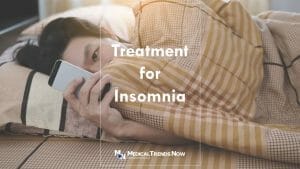
How Does Diagnosing Insomnia Help Cure Sleep Problems?
For those who suffer from sleep deprivation, a diagnosis of insomnia is the first step in finding a treatment for this sleep disorder. Determining whether an individual has insomnia is crucial to developing a plan which will allow them to get the rest they need.
Insomnia can be diagnosed by evaluating an individual’s medical history, lifestyle habits, and current sleep patterns. It is also important to understand how long they have struggled with sleep problems and identify any potential insomnia triggers or underlying causes. Doctors in the Philippines may use physical examinations, lab tests, and questionnaires to assess an individual’s symptoms and determine if they meet the diagnostic criteria for insomnia.
Once diagnosed, you can work with and talk to your doctor in the Philippines to develop a treatment plan that best suits your needs.
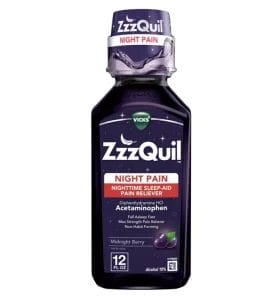
What is the Relationship Between Insomnia and Anxiety?
Insomnia and anxiety often go hand-in-hand, with one condition leading to another. Filipinos who suffer from insomnia are more likely to develop anxiety symptoms, while those who struggle with it may find it difficult to get enough sleep. Understanding the relationship between these two conditions is critical for finding an effective treatment.
Research has shown that insomnia and anxiety have a complex relationship that can exacerbate each other. Insomnia can cause ongoing feelings of stress, fatigue, irritability, and depressed mood, contributing to an increased risk of developing an anxiety disorder. Anxiety can also lead to sleep disturbances such as difficulty falling asleep, staying asleep throughout the night, or even having intense nightmares, further disrupting healthy sleeping cycles.
Fortunately, help is available for those seeking treatment for their insomnia and anxiety.
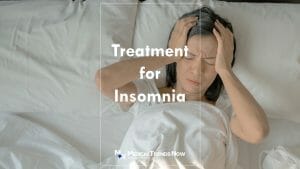
What is the Best Treatment for Insomnia in Adults?
Insomnia can lead to decreased productivity, difficulty concentrating, and irritability among Filipino adults. Finding the best treatment for insomnia in adults is essential for getting quality sleep and restoring energy levels.
Cognitive behavioral therapy (CBT) and the prescription of sleep medications are the most commonly prescribed treatments for adult insomnia. CBT helps teach relaxation techniques and healthy sleeping habits, such as avoiding caffeine or screens before bedtime. Prescription medications, such as Ambien or Lunesta, help regulate sleep-wake cycles by altering serotonin levels in the brain. Both types of treatments have been proven effective when used correctly; however, if one doesn’t work well enough, a Filipino doctor may recommend or prescribe both simultaneously.

How to Fall Asleep Fast?
If you’re struggling with insomnia, getting a good night’s sleep can be difficult. Fortunately, there are several treatments for insomnia that can help you fall asleep fast. Here are some tips for how to make falling asleep easier and faster:
First, create a routine and stick to it. Go to bed at the same time each night and wake up at the same time each morning. This helps your body recognize when it’s time to rest. Additionally, avoid blue light two hours before bedtime, as this stimulates your brain and makes it harder for you to drift off into sleep. Instead of spending time on your phone or computer before you go to sleep, consider reading a book or taking a warm bath. Lastly, limit caffeine intake in the late afternoon and evening, as caffeine is known to disrupt sleep patterns.
What is the Best Sleep Aid?
Insomnia has many causes, but for those living in the Philippines, it can be especially hard to deal with due to its tropical climate and lack of resources for proper treatment. If you are looking for an effective sleep aid that may help you sleep better and get a good night’s rest, several options are available in the Philippines.
When choosing a sleep aid, it is important to consider your specific needs and lifestyle. Natural remedies such as melatonin supplements or herbal teas may be suitable if you prefer natural solutions over pharmaceuticals. For more severe cases of insomnia, however, prescription medications may be necessary to provide relief from symptoms. Some popular choices include benzodiazepines and antidepressants, which can help reduce anxiety and depression related to insomnia.

What is Cognitive Behavioral Therapy?
Cognitive Behavioral Therapy, or CBT, is a widely used form of psychotherapy that helps individuals identify and modify thought patterns associated with certain behaviors. It is most commonly used as a form of treatment for various mental health issues such as depression and anxiety. Still, it can also be beneficial in managing physical conditions like insomnia.
CBT focuses on the idea that thoughts influence emotions and behaviors. By helping Filipinos recognize and challenge negative or unrealistic beliefs about themselves, CBT can help them replace these unhealthy thoughts with more positive ones. This can lead to improved emotional regulation, better-coping skills, and better overall mental well-being. In terms of treating insomnia specifically, CBT techniques such as sleep restriction therapy aim to help individuals create healthy sleep habits by limiting the amount of time spent in bed during periods of insomnia-related difficulty sleeping.
How to Stay Asleep Fast?
Are you having trouble sleeping at night? If so, you’re not alone. Insomnia is a common sleep disorder that affects millions of Filipinos every year. Staying asleep can be difficult, but treatments are available to help those struggling with insomnia get the rest they need. Here are some tips on how to stay asleep fast and effectively treat your insomnia.
The first step in treating your insomnia is creating a comfortable environment for yourself in your bedroom. Make sure it’s dark, quiet, and cool – this will help calm your body and mind before bedtime. A warm bath or shower may also relax tense muscles and help you fall and fall asleep faster. Additionally, avoiding caffeine or nicotine before bedtime can reduce disruptive tossing and turn throughout the night.
Establishing good sleep hygiene habits is another important part of staying asleep fast.
What are the Best Insomnia Treatments without Medication?
If you’re looking for ways to treat your insomnia without medication, there are many natural approaches in the Philippines that can help you get a better night’s sleep. Insomnia is defined as difficulty sleeping or staying asleep, which can be caused by stress, environmental changes, and physical health problems. The good news is that there are several treatments for insomnia without relying on prescription drugs.
Some of the most effective natural treatments for sleeplessness include regular exercise during the day, avoiding caffeine and alcohol close to bedtime, and setting up a comfortable bedroom environment. Exercise helps fight fatigue during the day so that you’ll feel more tired when it’s time to go to bed. Reducing caffeine consumption by noon helps reduce its effects at night while limiting alcohol intake prevents disturbances in sleep quality due to dehydration or disruption of hormones.
What are the Common Insomnia Symptoms
Insomnia is a sleep disorder that has become increasingly prevalent in the Philippines. It can have devastating consequences on physical and mental health, making it important to familiarize oneself with common symptoms.
The most common insomnia symptom is difficulty falling asleep or staying asleep throughout the night. Other symptoms may include waking up too early, feeling tired after waking up, having an unrefreshing sleep, and daytime fatigue or irritability. A person suffering from insomnia may also experience problems with concentration and memory and changes in mood or behavior.
Various treatment of insomnia options exists for those experiencing insomnia in the Philippines, ranging from lifestyle changes such as getting regular exercise to therapy and medications when needed. Seeking professional help is important if you’re struggling to get to sleep or get a good night’s rest due to any of the aforementioned symptoms.
How to Fall Asleep or Stay Asleep When You Are Stressed?
You are not alone if you’re having trouble sleeping due to stress. Many people with insomnia struggle with other sleep disorders every day. In the Philippines, treatment for insomnia is becoming increasingly popular as an effective way to get a good night’s rest. Whether through natural remedies or counseling, numerous options are available for those dealing with stress-related sleeplessness.
One of the most common methods used to help treat insomnia in the Philippines is cognitive behavioral therapy (CBT). This type of psychotherapy focuses on helping individuals understand how their thoughts and behaviors impact their ability to fall asleep and stay asleep. It involves examining distortions in thinking that may be causing anxiety or negative emotions, making it hard to sleep.
Treating Chronic Insomnia for Teens
The Philippines is no stranger to the problem of chronic insomnia. Many teens in the country are struggling with this common condition and are searching for relief. Fortunately, several treatments can help those suffering from chronic insomnia get back on track and start living normally again.
First, it’s important that teens consult with their primary care doctor or pediatrician in the Philippines to determine the cause of their insomnia. Once the underlying cause is identified, treatment options may include lifestyle changes such as reducing caffeine intake, avoiding technology before bedtime, exercising regularly, and getting adequate sleep each night. Other potential treatments include cognitive behavioral therapy (CBT), medications such as melatonin, or even herbal supplements like valerian root or chamomile tea.
What are the Best Home Remedies for Treating Insomnia?
Suffering from insomnia, or difficulty sleeping, can be extremely frustrating and prevent individuals from living a full and healthy life. Luckily, there are some home remedies Filipinos can use to help find relief from this condition. If you live in the Philippines and are looking for treatment for insomnia, here are some natural remedies that could work for you.
One option is to practice relaxation techniques like deep breathing or muscle relaxation exercises before bedtime. Meditation is also a great way to slow down your mind before going to sleep, as it helps reduce stress levels. Additionally, aromatherapy with lavender oil has been known to have calming effects when used at night before bed. You can also take a warm bath or shower an hour or two before bed to help your body relax and prepare for sleep.
What are the Best Medications for Insomnia
Insomnia is a common problem experienced by Filipinos of all ages in the Philippines and abroad. It can often lead to fatigue, difficulty concentrating, and even depression. Fortunately, there are a number of effective treatments available for those who suffer from insomnia. Here we discuss some of the best medications available for treating insomnia in the Philippines.
One popular treatment option is benzodiazepines such as lorazepam and diazepam, which act on GABA receptors in the brain to reduce anxiety and bring about relaxation. Non-benzodiazepines such as zolpidem are also prescribed by doctors in the Philippines to help induce sleepiness without producing unwanted side effects such as memory loss or impaired judgment. Additionally, certain antidepressants, such as trazodone, may be prescribed for their sedative properties which can help with insomnia symptoms.
How to Attain Deep and Better Sleep Naturally?
Are you having trouble getting a good night’s sleep? You’re not alone. Insomnia is an issue that affects millions of Filipinos worldwide, and in the Philippines, it can be especially difficult to get the restful sleep your body needs. Fortunately, natural insomnia treatments can help you achieve deep and better sleep without relying on medication.
From herbal teas to aromatherapy and acupuncture, there are several simple steps you can take to improve your sleep quality naturally. Herbal teas such as chamomile or valerian root are known for their calming effects. At the same time, aromatherapy with essential oils like lavender or bergamot may also relax both body and mind, so you fall asleep faster.
Another way to naturally treat insomnia is by making simple lifestyle changes like cutting back on caffeine or exercising regularly. Additionally, getting your bedroom environment into an ideal state with comfortable temperatures and no external disturbances can improve sleep quality. You should also try to avoid looking at screens before going to bed, such as TVs or smartphones, as this may inhibit your body’s ability to fall asleep quickly.
Final Thoughts: Treatment for Insomnia in the Philippines
In conclusion, insomnia can be a debilitating condition that affects many Filipinos. Treatment options for insomnia, however, have come a long way in recent years. With the right combination of lifestyle changes, cognitive behavioral therapy for insomnia, and medications, effective treatment for insomnia is possible. It can often lead to improved sleep quality and overall health. It is important for those suffering from insomnia to be aware of the various treatment options available to make informed decisions on how best to address their condition.
Sources: Treatment for Insomnia in the Philippines
- Nearly 7 out of 10 Filipino teenagers struggle from insomnia due to pandemic – study – The Filipino Times
- PH ranks 4th in sleep deprivation in the world – survey – The Filipino Times
- This sleep-deprived nation – The Philippine Star
- Insomnia Sleep Disorder – Sleep Education by the AASM treatment for insomnia – American Academy of Sleep Medicine
- Changing your sleep habits: MedlinePlus Medical Encyclopedia
- You’re experiencing insomnia: Insomnia – Diagnosis and treatment – Mayo Clinic
- Sleep Diary: How and Why You Should Keep One – Sleep Foundation
- Another Sleep Disorders: Symptoms, Causes & Treatment – Cleveland Clinic
- Chronic Insomnia Disorder – StatPearls – NCBI Bookshelf
- Insomnia and Older Adults – Sleep Foundation
- Long-term Insomnia Treatment: Insomnia – NHS
- Improving Quality of Your Sleep: How Is It Calculated? – Sleep Foundation
- How to Overcome Insomnia – Penn Medicine
Disclaimer
This website is intended to educate both members of the general public and those working in the medical field on the prevalence, causes, and methods for preventing, diagnosing and treating diseases that affect people throughout their lives. This website’s content is provided solely for informational reasons and is not meant to serve as a substitute for the advice of a qualified medical practitioner.

